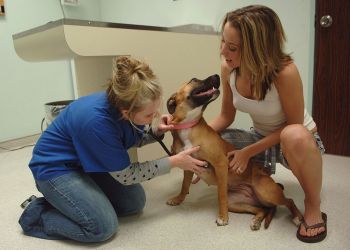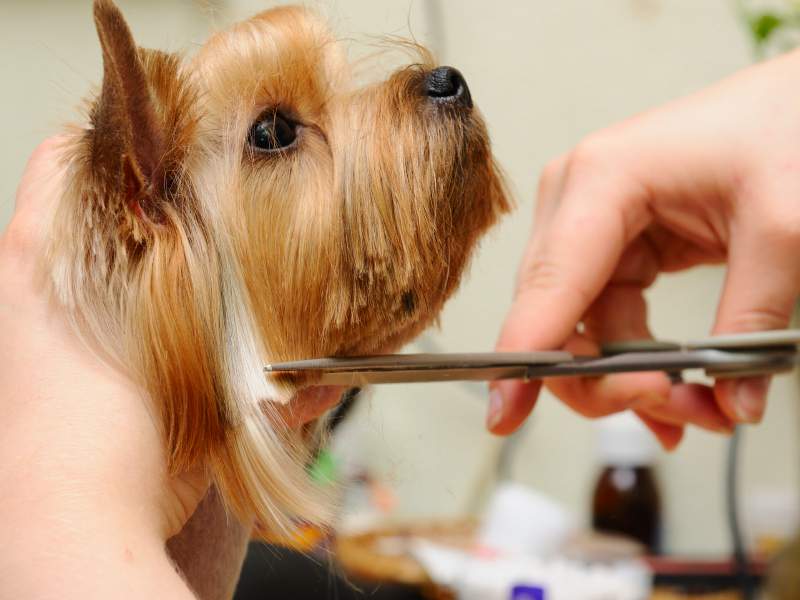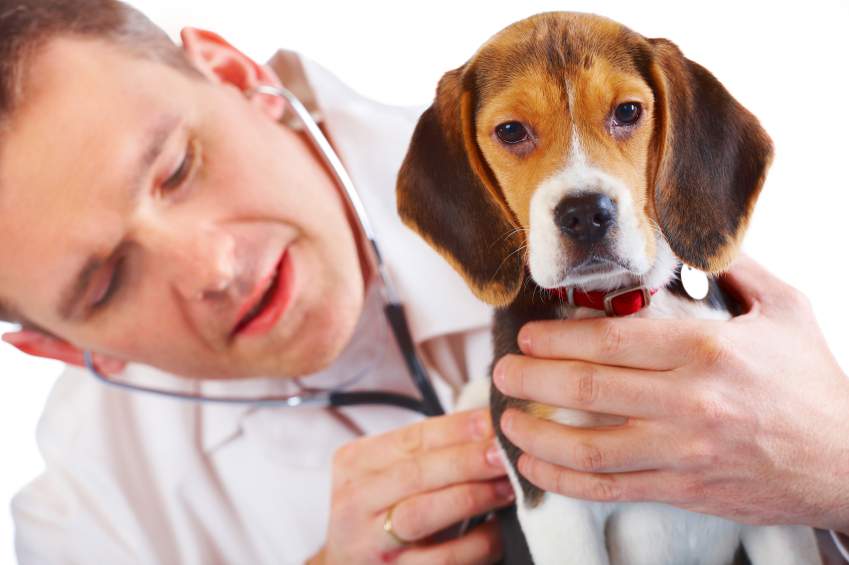

Prevention is better than cure’ is an old adage which still holds true. Prevention of diseases in your pet not only spares him the physical and mental torment, but also saves you a lot of unnecessary expenditure.
If only it were that easy though. You can help your lovable pooch through preventative healthcare, which is more than feeding him healthy food, and keeping him away from germs and injuries. It is a multi-faceted approach that includes analysis by a qualified vet, with respect to your doggie’s well-being.
Based on the findings from the tests conducted, the vet will provide you with recommendations for your pet’s health. These recommendations will encompass information related to your mutt’s nutrition, vaccinations, dental care, heartworm/flea/tick prevention, and that related to the risk factors that may affect him.
Preventative healthcare starts with you. Although you cannot protect your dog from every disease, you can take several preventive measures to keep them from succumbing to risks. Read on to know more.
Timely Vaccinations
One of the best ways of protecting your pooch from life-threatening illnesses is by getting him vaccinated. This will keep him protected from diseases such as distemper, rabies, hepatitis, kennel cough, parvovirus, para-influenza, and leptospirosis – many of which are still incurable. You can also get him immunized against Lyme disease and canine flu.
You can start your pet dog’s vaccination while he’s a puppy of 8 weeks. Typically, the initial vaccination course is carried out with 2 injections given in an interval of 3 weeks.
Apart from this, an annual booster vaccination is necessary to boost immunity levels. Be careful about this because if he misses the booster injection, he will have to undergo the initial vaccination course again.
For best results, talk to your veterinarian about the vaccines which are best suited for your dog based on his age, current health status, and exposure to risks.
Good Nutrition

You can experiment with various kinds of dog food before you determine which is best suited to his needs. Talk to your vet about it. They sometimes receive samples and freebies from dog food companies, which you may want your dog to experiment with, and then arrive at a decision as to what’s best for him.
Regular Exercise
A good diet supplemented with regular exercises will keep your pooch fit and active as opposed to weak and lazy. Take him out for a run, or a swim, and play with him. Not only will doing so keep him lean, but also enable you to bond.
Grooming Schedules

Should you ever experience a strong odor or discharge from your dog’s ears, you should understand it as a symptom of an ear infection. Trimming his nails will help him walk normally, thereby preventing injuries. Brushing his coat daily will not only keep it smooth and shiny, but also help you detect skin problems.
Protection from Parasites
Some of the most common problems that dogs face are due to heartworms, fleas, ticks, and intestinal parasites.
Heartworms are communicated by mosquito bites. Fleas and ticks not only spread diseases, but also result in extreme itchiness which can make your dog miserable. Intestinal parasites cause diarrhea and vomiting.
These can be a big nuisance to the well-being of your pooch, but can be easily prevented with some proper guidance from your vet, early vaccinations, and using medicated products.
Do Away with His Teething Troubles
Do not neglect your dog’s oral hygiene. Your dog’s dental care is vital to his overall health. Many a time, infections start in the mouth before spreading to the rest of the body. Dogs have almost the same oral care concerns as us, humans.
Plaque and tartar buildup causes problems such as bad breath, and loosening teeth, which can eventually fall off (or need to be extracted). To prevent such problems, make sure you brush your furry friend’s teeth twice a week with edible toothpaste.
Ask your vet for recommendations on which other products will help keep his mouth clean and prevent oral problems. You might find this difficult to do initially, but soon you will realize that this is better than watching your dog suffer dental problems.
Proper Pet Training
Invest ample time in training your dog, especially if he is still a puppy. The habits he forms at a young age are the ones that he will carry along with him through his lifetime. Additionally, a well-trained dog will bond better with those who he comes in contact with, instead of being hostile towards them.

It is always better to keep your dog’s health in check and monitor it from time to time before something goes drastically wrong. Do schedule the annual visits to the vet and get your canine buddy examined from head to toe. Also, get the routine check-ups and tests done at regular intervals in order to be able to detect tell-tale signs of a disease. Early diagnosis and medical attention will enable your dog to live a happier, healthier, and longer life.
Conclusion
A healthy dog is a happy dog, and is also a better and a more loyal friend. By planning ahead about his health, and taking proper and adequate preventive measures at the right time, you can ensure that your dog stays in good health throughout his life.



